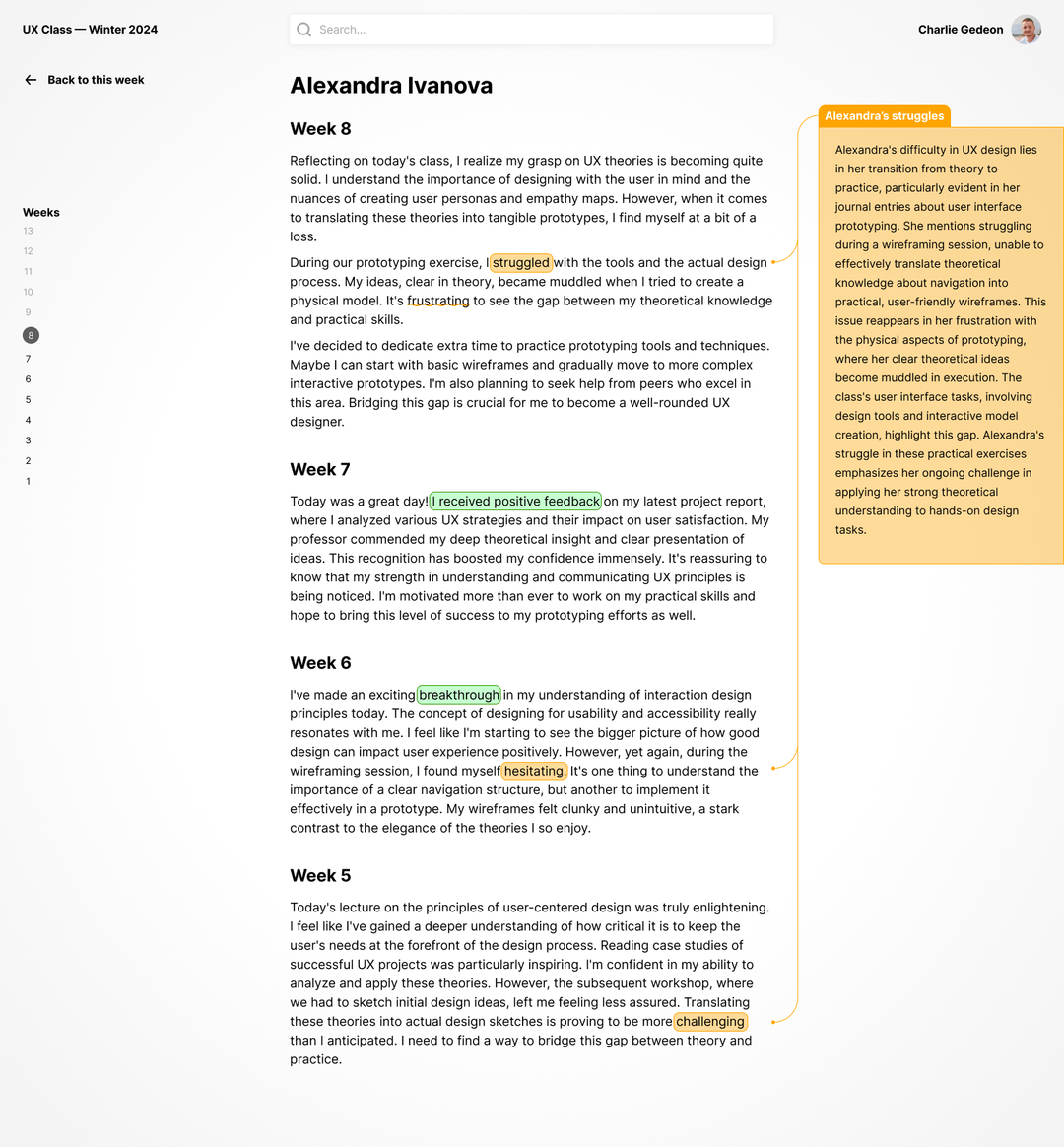Creating LLM interfaces for students to deepen their metacognitive abilities and social interactions
This tool combines AI with metacognitive reflection to improve students’ critical thinking. As students highlight and analyze texts, the AI prompts them to reflect on missed or related sections, encouraging deeper learning. By allowing both individual and group reflections, the tool fosters richer class discussions, helping students compare their thinking processes and learn from diverse perspectives in real time.
Breathing life in a classic teaching exercise with LLM-powered tools and fresh visualizations
The Discourse Coordinator tool encourages deeper student reflections by allowing individual comments to remain private until revealed for group discussion. By using AI to group students based on diverse opinions or similar insights, it fosters richer conversations and critical thinking. Whether through dynamic breakout groups or guided class debates, this tool ensures that students engage with differing perspectives, promoting a more thoughtful, inclusive learning environment.
Reflection AI: Turning Student Insight Into Action
Challenge: How can we prompt students to engage more deeply with their learning and reflections?
Reflection AI brings a new level of depth to student reflections by providing professors with a data-rich layer of analysis. The AI pinpoints key themes and trends across journal entries, giving instructors a clearer understanding of their students’ progress and challenges. Rather than leaving interpretation to chance, professors stay in control, using the AI’s insights to offer more personalized, meaningful feedback that drives both academic and personal growth. This tool transforms the way reflections are understood, ensuring no insight is overlooked, and every student gets the support they need.

Helping students let go of limiting learning styles myths and develop nuanced understanding of how to learn in different contexts
Remember the old “learning styles” theory? This experiment seeks to break those myths using interactive, multi-modal content to show students how diverse learning experiences work in tandem. Drawing from research on the damage caused by student pigeonholing themselves by learning styles, this interactive tool allows students to experience content through multiple media types and reflect on which format works best in different contexts. The tool is a reminder that no single learning style suits all situations but rather about adapting dynamically to the content itself.
Using biases that make us better at advising others to help students build their own self-esteem and self-efficacy
When students face challenges, they often look to instructors for guidance. But what if the best advice comes from within? This experiment taps into the advice-giving effect, where offering advice to others helps you reflect on your own struggles. By prompting students to anonymously advise a peer (who is actually themselves), they gain a fresh perspective on their challenges. This process not only boosts confidence but also strengthens problem-solving skills, fostering both personal growth and a deeper sense of self-reliance.
Care about supercharging learning with metacognition? Let’s talk!
Here’s how I can help:
- Co-designing tools, systems, or experiences that deepen understanding
- Leading workshops or learning programs that make space for reflection and curiosity
- Advising on projects involving AI, interface design, or collaborative tech
- Speaking or teaching on design, education, and innovation
- Collaborating on research or exhibitions that challenge assumptions
If something sparked your interest, drop me a line.
